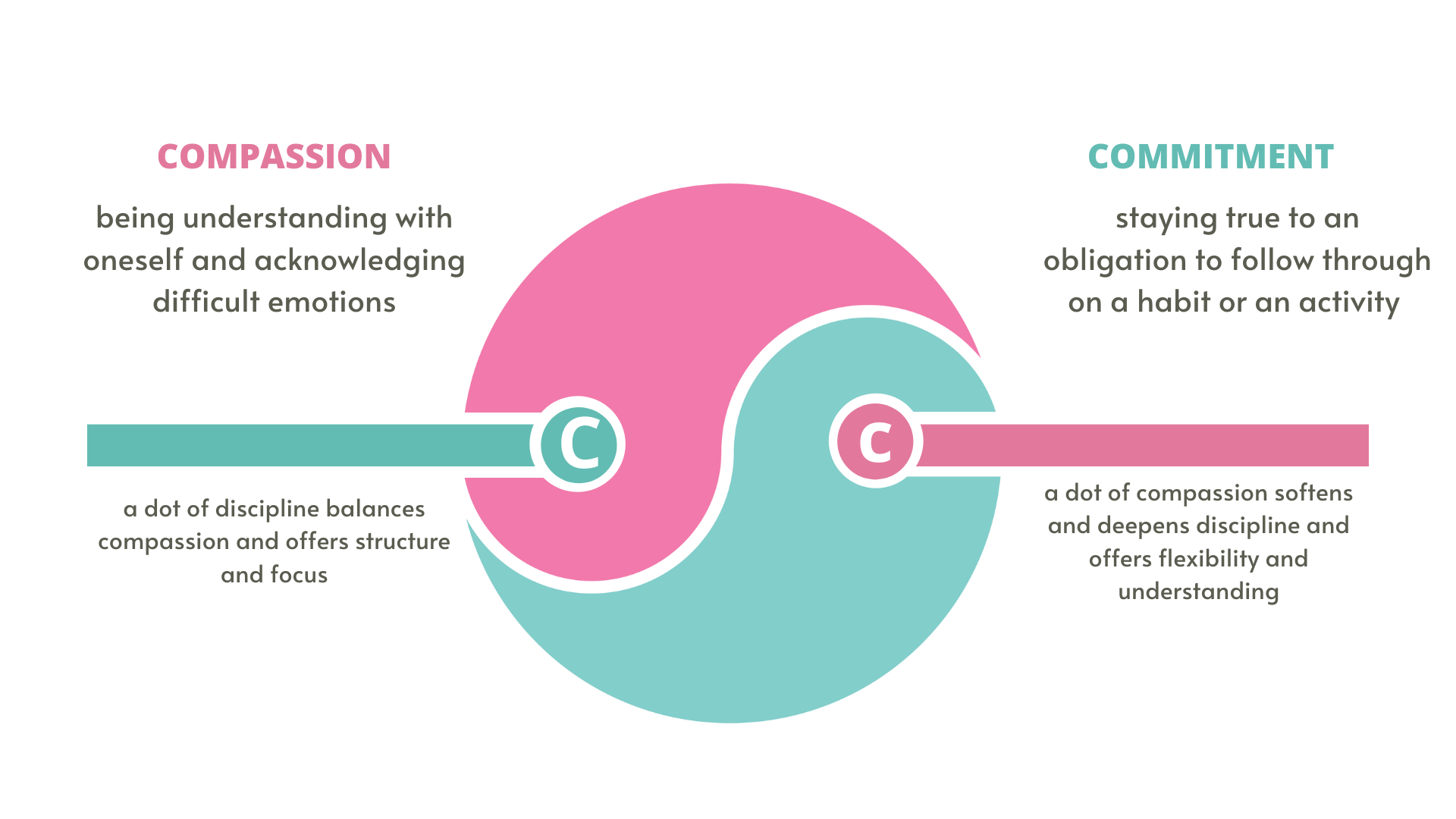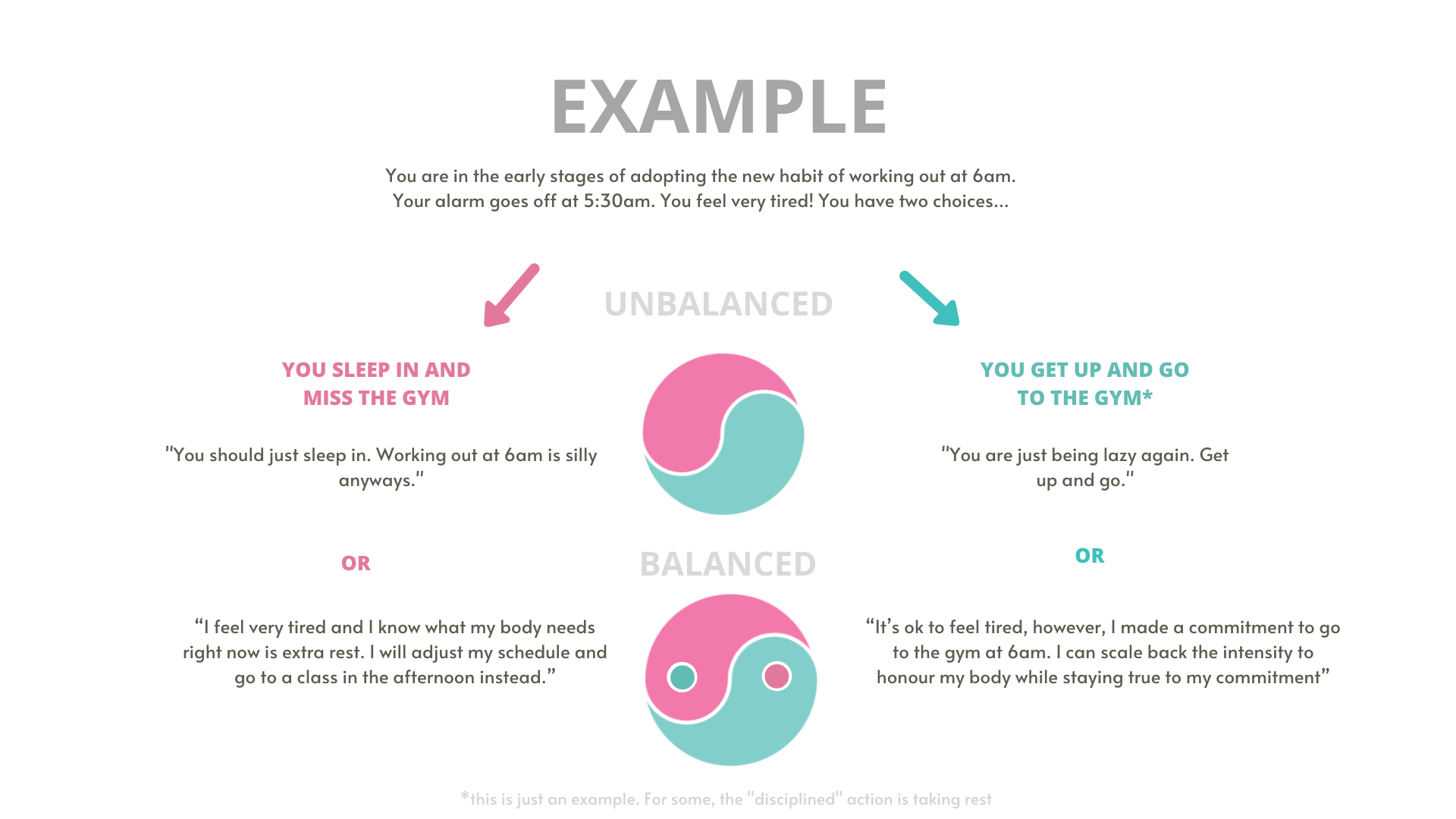How To Increase Motivation │ A Dietitian's Perspective
Nov 04, 2021
The word 'motivation' has been given many definitions over the years, but a common understanding is that motivation is a force that energizes, activates, and directs behaviour. When it comes to healthy living, making progress towards a goal can be easier when motivation is high. At the same time, it's only normal to experience periods of reduced or low motivation.
As Registered Dietitians and Nutritionists in Saskatoon, our work extends beyond just helping clients understand, identify, and implement healthy eating habits. Our work also includes an array of lifestyle considerations - including sleep, fitness, mindset, and more - that help our clients live and feel their best. Motivation is an important theme that comes into play not only with the food our clients eat, but also their decision-making around a multitude of lifestyle factors. Here's how we as Registered Dietitians help our clients overcome periods of low motivation, and support them in taking action towards their unique health and fitness goals!
1. Be compassionate with yourself, and remember that everyone feels unmotivated sometimes.
To foster self-compassion is to be forgiving, accepting, and loving with yourself when your emotional state is less than optimal. We like to remind our nutrition clients that motivation - like all emotions - is non-permanent. While there are many factors that can influence levels of motivation, it is completely normal (and expected!) to feel unmotivated at times. Rather than criticizing or judging yourself when you feel unmotivated, we encourage you to instead offer yourself patience and understanding.
For example, a compassionate inner dialogue might sound something like "it's okay to feel unmotivated from time to time. These feelings are no indication of my value or worth". By releasing self-judgement and embracing self-compassion, we create space for feelings of unmotivation to pass.
At the same time, fostering self-compassion doesn't mean neglecting or abandoning the commitments that support your overall health. You can still take action regardless of your motivation levels, and develop a compassionate inner dialogue that includes a commitment to your healthy habits. One example of this might include something like: "it's okay that I don't feel like exercising today, but I am going to go anyways because I promised myself I would." A dialogue like this acknowledges the underlying emotion (or lack thereof!) whilst staying true to a commitment that is important to you, your health, and your goals.


2. Take action on your ‘big rocks’
Having self-discipline means taking action on the choices that are in alignment with your goals, regardless of whether or not you feel motivated to do so. In other words, self-discipline can mean doing something even when you don't feel like it!
As Registered Dietitians, we often encourage clients who are struggling with self-discipline and motivation to strategically consider whether or not now is a good time to add new goals and habits, or instead to work on supporting existing ones. When motivation is low, it's typically not a good time to focus on adding new habits, goals, or commitments to one's plate. Instead, you can take action during these times by following through on the choices that have the biggest impact on achieving or maintaining your optimal health. By contrast, when motivation is high, these can be ideal times to add in extra action-steps or habits that will push you further ahead on your journey.
A tool we often use with our nutrition coaching clients is the concept of a motivation jar, which can be filled with a finite number of rocks, pebbles, and grains of sand. Everyone's rocks, pebbles, and sand will look different. Regardless of what the contents of your jar look like, if you fill it with too much sand first, the rocks and pebbles won't fit. Spend some time thinking about your 'big rocks', 'pebbles', and 'sand'. When you are feeling unmotivated, focus on the 'big rocks' first, and reserve the pebbles and sand for periods of more motivation, time, and energy!

3. Don’t identify.
Something we remind our clients (and even ourselves as Registered Dietitians!) is that one's current behaviours are a reflection of their current identity. In other words, what you do now is a mirror image of the type of person you believe that you are - either consciously or subconsciously.
Identity-based statements typically start with “I am”, for example: “I am not a motivated person” or “I am unmotivated.” These statements may seem harmless, but by over-identifying with the (temporary) emotion of being unmotivated, you are more likely to adopt the emotion as a fixed characteristic or personality trait. The belief that you are an unmotivated person runs the risk of becoming a self-fulfilling prophecy! Inevitably, you will begin to avoid taking action on the behaviours that are in alignment with what you value because you have told yourself that you "just aren't motivated enough". If you are feeling unmotivated, remind yourself that your emotions don't define your character. Just because you aren't feeling motivated at this moment in time doesn't mean you are an 'unmotivated person'. By letting go of limiting identities you will better create space to transform into the type of person who takes actions towards their goals - whether or not they're feeling motivated!
4. Do something you love.
If a lack of motivation to take action towards your wellness goals seems to be lingering for longer than what is optimal, perhaps it is because you haven’t been igniting your passion with activities that you love! Try scheduling activities that make you feel uplifted, as these can promote a ripple effect into other areas of your life. Dietitian tip: Make a list of activities that you are passionate about and schedule them into your week! For example:
- Invite a friend over for supper
- Take a group exercise class
- Spend time in nature
- Play a sport
- Schedule time for a hobby (eg. playing an instrument, gardening, art, etc).
- Listen to upbeat music
By intentionally engaging with activities that make you feel passion and joy, you may find your overall motivation is higher. This boost of motivation can translate to taking action toward your health-related goals and beyond!
5. Adopt The Five Second Rule.
If you feel yourself hesitating before doing an activity or task that you know you need to do, we recommend adopting The Five Second Rule. This involves counting 5-4-3-2-1-BLAST-OFF and immediately moving towards action. Whatever your goals are, this tip helps you prove to yourself that you don't require motivation to take action. Plus, it's surprisingly difficult not to take action at the sound of the word 'BLAST-OFF' - haha! For examples:
- If you don’t feel like getting out of bed at the sound of your alarm, count 5-4-3-2-1 BLAST-OFF and jump out of bed.
- If you don’t feel like going for a run in the morning, count 5-4-3-2-1 BLAST-OFF and head out the door.
- If you don’t feel like cooking a healthy meal, count 5-4-3-2-1 BLAST-OFF, and get to work on washing and chopping ingredients.
The Five Second Rule is a concept shared by Mel Robbins.
6. Go for a walk outside
As our team of Registered Dietitians in Saskatoon will tell you, a walk outside is a double-whammy for boosting energy and motivation! For one, natural light from the sun increases energizing hormones (eg. cortisol) which can increase motivation. Secondly, the gentle motion of walking will circulate nutrients to your brain and muscles, therefor energizing your body and mind.
7. Spend time around high-vibe people
Your social groups, which can include your family, friends, neighbours, co-workers or even gym-buddies, can majorly influence your energy and motivation. While it isn’t possible to curate all of your social circles, we encourage you to take note of the people who leave you feeling motivated and energized (vs. those who don't). For example, some people find they lack the personal motivation to workout solo, but feel motivated to workout with the energy of a group-based class (eg. CrossFit or Spin). You may also find yourself more motivated to prepare a delicious and healthy recipe when doing so in the company of other friends who you know will equally enjoy it! If you know your energy levels are influenced by a motivated group, we encourage you to intentionally schedule time around people who motivate and inspire you!
8. Curate your environments
Your surroundings can have a big impact on both how you feel and how you live your life. We encourage you to curate your home, workplace, and even social media feeds to reflect motivation, passion, and an enthusiasm for life. For example:
- Open up the blinds to let in natural light.
- Hang art or decor in your home or office that inspires you.
- Use colours that calm and rejuvenate you.
- Reduce clutter and create more space for clarity and productivity.
- Follow social media accounts that leave you uplifted!
9. Get curious
Finally, instead of judging yourself harshly for feeling unmotivated, our team of Registered Dietitians suggest that you try adopting an outlook of curiosity surrounding your lack of motivation. Are your current habits negatively impacting your levels of motivation? How does a good night’s sleep, spending time in nature, moving your body daily, or eating balanced and nutritious meals boost your energy and motivation? Reflect on periods of high motivation - what choices were you making at that time that may have contributed to increased motivation? Don't forget that while you can’t directly control your current emotions, you can become aware of the choices and patterns that influence your emotions over time!
Bottom-line:
It can be tempting to succumb to a feeling of helplessness or defeat when your motivation is low. While it is normal to experience low motivation from time to time, it is possible to increase your energetic frequency through intentional choices, mindsets, and habits! Our team of Registered Dietitians and Nutritionists at Vitality Nutrition invite you to approach periods of lesser-motivation with compassion, curiosity, and perspective, and not to hesitate in contacting us should you like to incorporate our support in developing food, fitness, and lifestyle habits that work for your individual circumstance and goals!
For more tips, listen to our Podcast episode where we explore motivation in further detail! You can find the episode here.
Ready to bring the evidence-based nutrition support of our Registered Dietitians into your kitchen?
Hungry for more?
Get recipes, tips, and updates from the Vitality Nutrition team straight to your inbox!
Don't worry, your information won't be shared.

